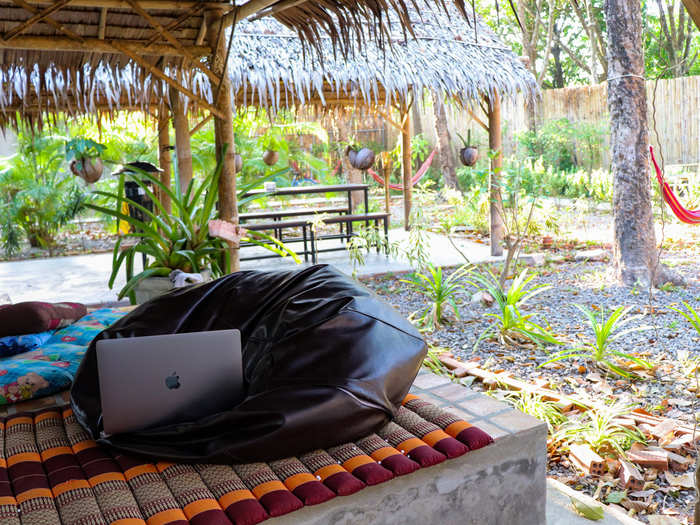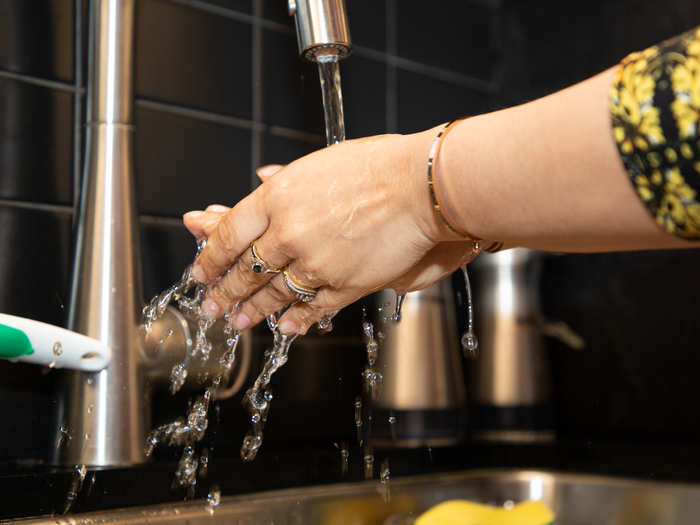- Home
- slideshows
- miscellaneous
- Traveling nonstop for a month gave me early exposure to coronavirus panic. Here's my advice to battling stress around the outbreak.
Traveling nonstop for a month gave me early exposure to coronavirus panic. Here's my advice to battling stress around the outbreak.
Learn basic tips on how to keep yourself and others safe.

Do not go overboard on news consumption.

While it's good to know how to keep yourself safe, I also found it helpful to avoid going overboard on reading about every single case of coronavirus. While many of these stories are crucial journalism, I also found it necessary to realize my limits.
When I was in Vietnam — which still only has 16 confirmed cases — reading about the rise of cases in other countries only fed my fears. Some people may feel better reading every possible story about coronavirus. But, in my case and I suspect others' cases, it can be helpful to impose a limit on how much news you're reading and watching about the outbreak.
Stay flexible.

While the likelihood of most young, healthy people getting sick is low, it is good to reduce risks to prevent the spread of coronavirus to the elderly and people with preexisting conditions. If there is a path that reduces risks, it often makes sense to take it or make it available to others.
For me, staying flexible meant cancelling travel plans.
If you're in the US, it might mean working from home instead of going into the office. If you're in a position to set policies that encourage employee flexibility and give workers the ability to make choices that reduce risks without sacrificing their paychecks, seriously consider doing so. And, if you're ordering food, hailing a cab, or paying for some service that requires a worker to interact with others, be flexible instead of demanding — and tip well.
Ultimately, it is still unclear what will happen next as the outbreak spreads. While experts have predictions, it is impossible to guess how the outbreak will impact you as an individual and others in your specific community at this point. Instead of focusing on what might come next, it helped me to accept that I would be adapting to the changing circumstances.
Prioritize your mental health.

It can feel self-indulgent to prioritize your mental health when there are people who are sick and dying. But, experts agree that managing anxiety and stress is a key way to avoid getting sick and spreading the virus.
Prioritizing mental health can mean different things for different people.
Shayla Love has a good article in Vice on how to deal with coronavirus if you have OCD or anxiety. Doomsday preppers recommend exercise for the mental boost. If you see a therapist and aren't able to go in person, see if you can set up a Skype meeting or phone call instead.
For me, anti-anxiety efforts meant setting aside weekends to unplug, journal, and stop reading the news.
Stay healthy more generally.

In areas where there are few or no confirmed cases of coronavirus, it's good to remember that you're more likely to get other sicknesses than the coronavirus. These illnesses can weaken your immune system — or just make self-quarantine more miserable. Throughout the trip, I tried to continue to exercise, eat healthy options, and take vitamins.
"Getting the right mix of healthy, wholesome foods in your diet rich in nutrients like zinc, copper, and various vitamins not only lowers your risk of chronic diseases like diabetes and heart disease, but it can also help your body fight off more temporary infections and illnesses, like COVID-19," reports Insider's senior health and science reporter Hilary Brueck.
Wash your hands.

The CDC's official recommendations are basically to avoid being around sick people (or forcing healthy people to be around you when you're sick), avoid touching your face, and cleaning frequently touched objects. The final recommendation is to wash your hands.
If you're in a position where you can wash your hands regularly, do so! It's an easy way to help prevent yourself and others from getting sick, and there is no soap shortage at this point. Using hand sanitizer in between washes is also a good idea.
Popular Right Now
Advertisement